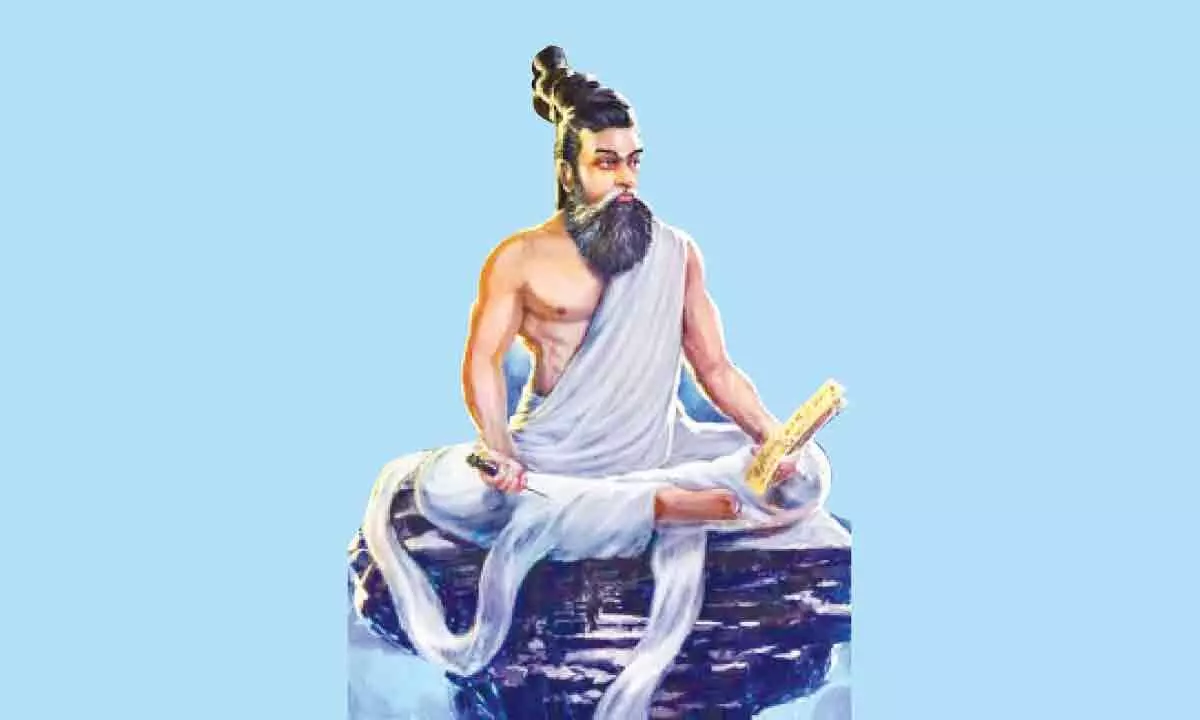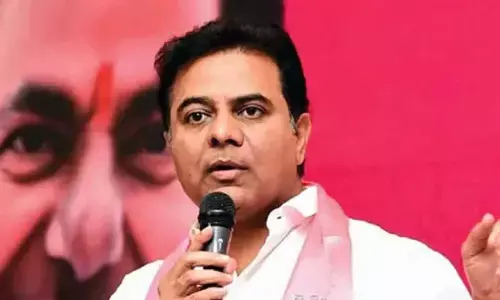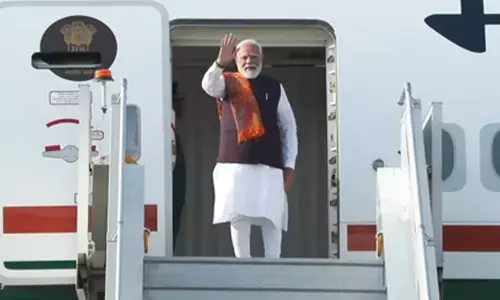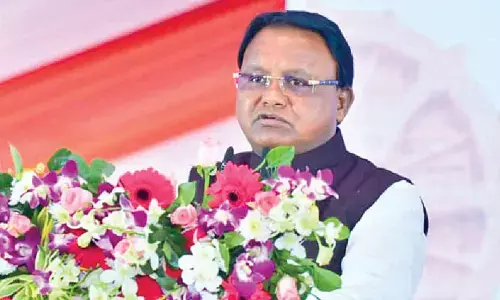Knowing the Past, Present, and Future

In a surprising statement in the Gita (10-37), Krishna refers to Sukracharya, the teacher of demons, as one of his manifestations. Sukracharya is described as a kavi, a person who has knowledge of the past. The commentators explain that only he who knows the past can understand the present and the future. The teacher of the demons advises the demons every time, but they see the present but not the consequences. Krishna implies that one has to know the past to know our future actions
In a surprising statement in the Gita (10-37), Krishna refers to Sukracharya, the teacher of demons, as one of his manifestations. Sukracharya is described as a kavi, a person who has knowledge of the past. The commentators explain that only he who knows the past can understand the present and the future. The teacher of the demons advises the demons every time, but they see the present but not the consequences. Krishna implies that one has to know the past to know our future actions.
The word kavi is equivalent to the English word poet, which is so in all Indian languages. A poet is one who is socially aware; he reflects on the happenings and guides society wisely. In our ancient stories, too, we find that sages like Narada are referred to as tri-kala-jna, a person knowing the past, present and future. It means that an intelligent person is one who knows and analyzes human nature in groups, human nature as political states, and human nature in religion and knows the present and visualises future trends. When Valmiki meets Narada, he asks him to tell who the ideal person of the time was, as Narada happens to know everything. Narada, as we know, briefly gives the story of the Ramayana to Valmiki.
One mistake committed even by our education is to pay attention to the study of history in our pursuit of sciences. In independent India, the young are particularly unaware of its past, glories and bruises, merits, and demerits, which would guide us in the present and future. The better we study, the better we can understand the present and the future. This is what tri-kala-jna says too. It is now a clichéd expression that one who does not learn from history is condemned to repeat it.
It is quite often pointed out that Indian history is deliberately suppressed. Even during British rule, the glorious passages of Indian history were kept obscure. In an essay (1903) titled The History of Bharatvarsha, Rabindranath Tagore wrote: “Our real ties are with the Bharatavarsha that lies outside our textbooks……For hundreds of years, our roots, hundreds and thousands of them, have occupied the very heart of Bharatavarsha. But unfortunately, we are obliged to learn a brand of history that makes our children forget this very fact. It appears as if we are nobody in India”. He saw the historians leaving out the cultural and civilizational roots and recording history to suit the colonial Raj, cutting off our cultural roots.
All regimes probably do distortion of truth to present their socio-cultural or political narratives. The Information explosion has undone all this and has presented a vast amount of information to the most ordinary citizen. Mainstream media (MSM) and alternative media (social media) are also history and suffer from the same infirmities as conventional history. They too, are not angels, as we see. They can be the sweet voices of the devil.
Indians are blamed for not having a historical sense. They likely focused on the philosophical study of the interplay of the sattva, rajas and tamas forces and drew conclusions without bothering for details. Our itihasas, The Ramayana and The Mahabharata, can be examples of philosophical understanding of history. These two texts guided Indian society through millennia, giving a cultural and moral vision. A mature-reader will not be content with the story but will see the ethical debates in them. There are several stories of common people, like Sabari or Guha in the Ramayana, and people like Dharma-vyadha and several others in the Mahabharata, which tell the interpersonal relationships. These sociological debates are relevant to the present day. William Jones ignored all great texts and held up Manu Smriti to focus on certain lines therein to blame an ancient civilization, but we are now awake. Many later works of poetry, historical plays and historical accounts give us social history. Studying these will liberate us from the delusion and self-loathing caused by colonial narratives, provide us with self-esteem and guide our future actions.
(The writer is a former DGP, Andhra Pradesh)

















